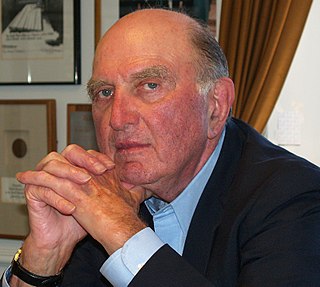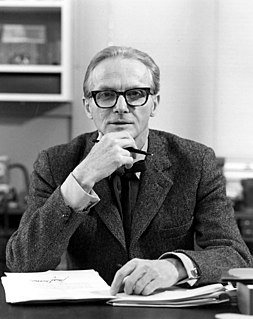A Quote by Philippe Cousteau, Jr.
The fundamental essence of science, which I think we've lost in our education system, is poking something with a stick and seeing what happens. Embrace that process of inquiry.
Related Quotes
Real inquiry is a tremendous moral transforming force. It's not just questioning and looking for a quick answer or explanation, but the process of inquiry-of questioning, of opening-opens something in the human being which has not been touched in our culture. Everybody who is human has in themselves the potential of passionate inquiry after truth, and that's the transforming force.
The education of our people should be a lifelong process by which we continue to feed new vigor into the lifestream of the Nation through intelligent, reasoned decisions. Let us not think of education only in terms of its costs, but rather in terms of the infinite potential of the human mind that can be realized through education. Let us think of education as the means of developing our greatest abilities, because in each of us there is a private hope and dream which, fulfilled, can be translated into benefit for everyone and greater strength for our Nation.
The suppression of uncomfortable ideas may be common in religion or in politics, but it is not the path to knowledge, and there's no place for it in the endeavor of science. We do not know beforehand where fundamental insights will arise from about our mysterious and lovely solar system. The history of our study of our solar system shows us clearly that accepted and conventional ideas are often wrong, and that fundamental insights can arise from the most unexpected sources.
As soon as science has emerged from its initial stages, theoretical advances are no longer achieved merely by a process of arrangement. Guided by empirical data, the investigator rather develops a system of thought which, in general, is built up logically from a small number of fundamental assumptions, the so-called axioms. We call such a system of thought a theory. The theory finds the justification for its existence in the fact that it correlates a large number of single observations, and it is just here that the 'truth' of the theory lies.
Science is not a system of certain, or -established, statements; nor is it a system which steadily advances towards a state of finality... And our guesses are guided by the unscientific, the metaphysical (though biologically explicable) faith in laws, in regularities which we can uncover-discover. Like Bacon, we might describe our own contemporary science-'the method of reasoning which men now ordinarily apply to nature'-as consisting of 'anticipations, rash and premature' and as 'prejudices'.
Free speech is essential to education, especially to a liberal education, which encourages the search for truths in art and science. If expression is restricted, the range of inquiry is also curtailed... The beneficiaries of a free society have a duty to pursue the truth and to protect the freedom of expression that makes possible the search for a new enlightenment.
Our schools offer no conception of the scientific process of discovery. They do not encourage creative thought, in fact, they stifle it through too much rigidity in teaching. If we set out to give as little help as possible to originality in science, we could hardly devise a better plan than our education system. Youngsters ought to be told what is unknown about ourselves and our universe as well as what is known.




































